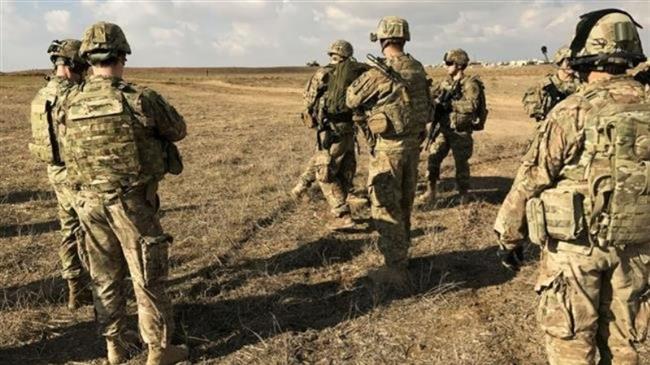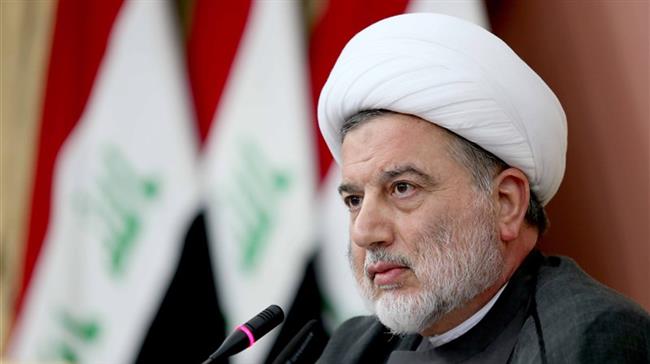Iraqi warplanes hit strategic Daesh position in eastern Syria, kills 30 commanders
Iraqi military aircraft have pounded a strategic position of the Daesh Takfiri terrorist group in Syria’s eastern province of Dayr al-Zawr after Syria's president, Bashar al-Assad, allowed Iraqi fighter jets to conduct airstrikes against the extremists in Syria without waiting to be granted formal authorization for the assaults.
The media bureau of Iraq’s Joint Operations Command, in a statement released on Monday, announced that Iraqi F-16 fighter jets had bombed and destroyed a two-story building on the outskirts of the village of Sousa, killing 30 Daesh commanders as they were holding a meeting.
The statement added that the aerial assault was carried out following close surveillance by the Iraqi Intelligence Service.
The development came a day after a high-ranking Iraqi official, speaking on condition of anonymity, told Russia's RT Arabic television news network that Iraqi warplanes will be able to enter the Syrian airspace and bombard Daesh sites under Assad’s directives.
The Iraqi official, however, highlighted that the Syrian president had demanded that the Baghdad government inform Syrian authorities before launching any aerial raid.
Iraq sentences over 600 foreigners in 2018 over Daesh links
Meanwhile, Abdul Sattar al-Biraqdar, spokesman for Iraq's Supreme Judicial Council, said on Monday that courts in the country have handed down sentences to more than 600 foreign nationals, including many women and dozens of minors, in 2018 over their membership in the Daesh terror group and involvement in acts of terror.
Biraqdar added that “616 men and women accused of belonging to Daesh have been put on trial” throughout this year, and sentenced under Iraq's anti-terrorism law.
They comprised 466 women, 42 men and 108 minors, he noted.

Biraqdar, however, did not specify the punishments.
Former Iraqi Prime Minister Haider al-Abadi declared the end of military operations against the Daesh Takfiri terrorist group in the Arab country on December 9, 2017.
On July 10 that year, he had formally declared victory over Daesh in Mosul, which served as the terrorists’ main urban stronghold in Iraq.
In the run-up to Mosul's liberation, Iraqi army soldiers and volunteer Hashd al-Sha’abi fighters had made sweeping gains against Daesh.
Iraqi forces took control of eastern Mosul in January 2017 after 100 days of fighting, and launched the battle in the west on February 19 last year.
Daesh began a terror campaign in Iraq in 2014, overrunning vast swathes in lightning attacks.
Yemeni armed forces down F-18 fighter jet, repel US-UK attack: Spokesman
Iran warns against US-Israeli plot to weaken Muslims, dominate region
VIDEO | Public uproar in US against Israeli regime
‘Ghost town’: 70% of Jabalia buildings destroyed by Israel
Mother’s Day: Sareh Javanmardi’s inspiring journey as Paralympic champion and mother
Russia downs over 40 Ukrainian drones as Putin vows 'destruction' on Kiev
VIDEO | Yemen: A bone in Israeli neck
D-8’s role in Iran’s economy after Cairo summit

















 This makes it easy to access the Press TV website
This makes it easy to access the Press TV website